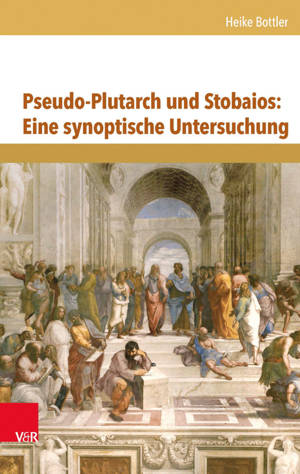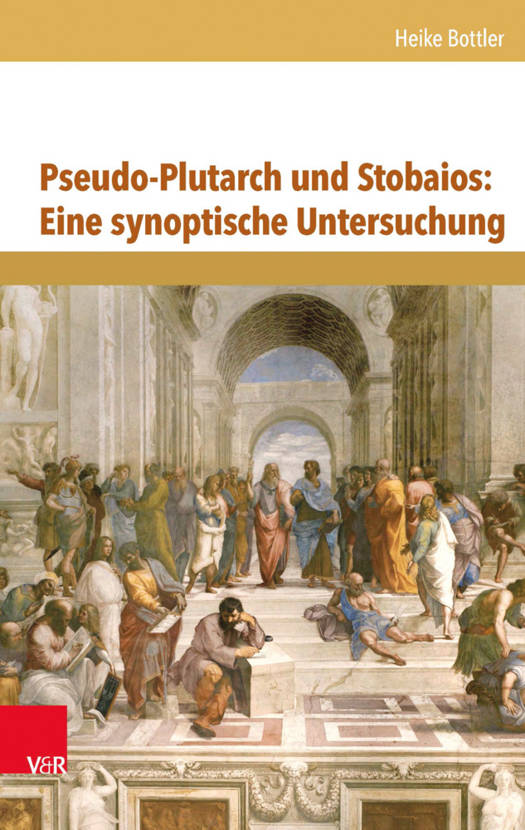
- Afhalen na 1 uur in een winkel met voorraad
- Gratis thuislevering in België vanaf € 30
- Ruim aanbod met 7 miljoen producten
- Afhalen na 1 uur in een winkel met voorraad
- Gratis thuislevering in België vanaf € 30
- Ruim aanbod met 7 miljoen producten
Zoeken
Omschrijving
English summary: This study touches upon the Aetius hypothesis established by Hermann Diels in 1879 about the relation of dependence of doxographical sources. They stem largely from the basic texts, the Placita of Pseudo-Plutarch and the Eclogae of Stobaeus, to reconstruct the work of Aetius. Methodologically, an attempt has been made to consider the basic texts separately from that of Aetian and not, as is usually the case, to regard them as the equivalent to the Aetian's, which merely exists idealiter as a hypothetical outcome of related text sources directly or indirectly. Taking into account the text sources, particularly the Theodoret and the Achilles, the synoptic examination of basic texts unravels structural and substantial anomalies which lead to constructing new hypotheses, without having to follow the postulate of the reconstruction of Aetius. It turns out that the Placita of Pseudo-Plutarch covered far-reaching transformation that are the result of traditional processes which are not synchronized with on another. German description: Die nicht direkt uberlieferte Schrift des Aetios (1. Jh. n Chr.) nimmt unter der Placita-Literatur, die in kompendienhafter Form Lehrmeinungen antiker griechischer Philosophen zusammenstellt, eine besondere Stellung ein. Nicht selten gilt sie als die einzige Quelle fur Aussagen vorsokratischer und hellenistischer Philosophen. Heike Bottler stellt in ihrer Arbeit die allgemeine Annahme von Hermann Diels auf den Prufstand, dass Aetios sich im Wortlaut aus den Placita des Pseudo-Plutarch (2. Jh. n. Chr.) und des Johannes Stobaios (5. Jh.) rekonstruieren liesse. Sie zeigt, dass die Placita nicht als eine organische Einheit anzusehen sind und einer tief in Struktur und Inhalt eingreifenden redaktionellen Bearbeitung unterzogen wurden. Demnach durfen sie nicht grundsatzlich als Vorlage dienen.
Specificaties
Betrokkenen
- Auteur(s):
- Uitgeverij:
Inhoud
- Aantal bladzijden:
- 552
- Taal:
- Duits
- Reeks:
- Reeksnummer:
- nr. 198
Eigenschappen
- Productcode (EAN):
- 9783525253052
- Verschijningsdatum:
- 1/10/2014
- Uitvoering:
- Hardcover
- Formaat:
- Genaaid
- Afmetingen:
- 160 mm x 237 mm
- Gewicht:
- 1051 g

Alleen bij Standaard Boekhandel
+ 518 punten op je klantenkaart van Standaard Boekhandel
Beoordelingen
We publiceren alleen reviews die voldoen aan de voorwaarden voor reviews. Bekijk onze voorwaarden voor reviews.







